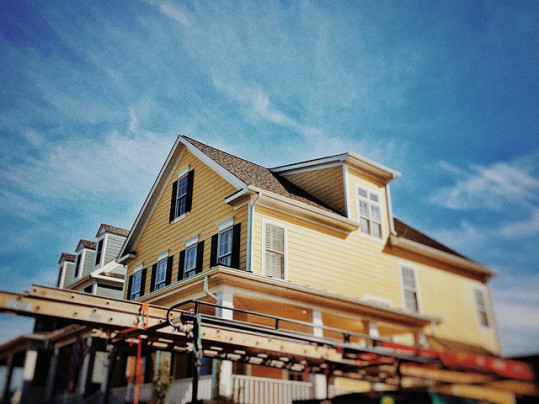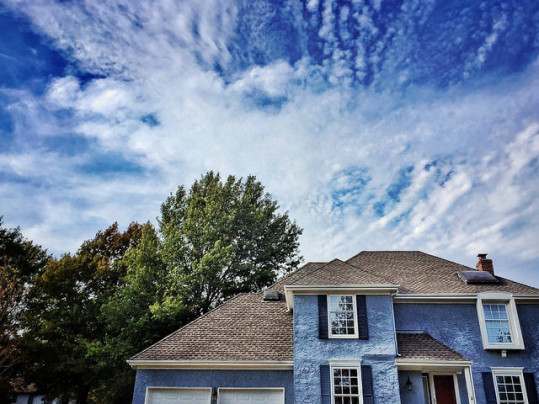The argument for or against buying a home usually rests, to some extent, on wealth creation. Conventional wisdom says homeowners – through equity and price appreciation – are building wealth, while renters are throwing their money away each month. Of course, there are some notable instances where that basic argument seemed discredited. Take the most recent financial crisis and housing crash, for example. Following the crash, many people began to question the typical arguments in favor of homeownership, as homeowners saw their home values plummet. Now, a new study from Florida Atlantic University, Florida International University, and the University of Wyoming says homeownership offers no financial advantage when compared to renting and investing in a portfolio of stocks and bonds. However, the study’s findings are based on an assumption that renters will use any extra money, not on consumption, but on investing for the future. According to the results, “The analysis showed that households that are likely to not reinvest buy-rent cash differentials should mostly own rather than rent their primary residence as ownership forces them to save.” In other words, you can create wealth while renting, if you’re disciplined and invest wisely. If not, buying is a better deal. More here.
Archive for November 2017
Builder Confidence Nears Record High
The National Association of Home Builders’ Housing Market Index measures how confident home builders are in the current and future market for new homes. The survey – which has been conducted for 30 years – is considered a good barometer of the housing market’s health, as it can be used to forecast the likelihood that builders will increase the number of homes they build. Scored on a scale where any number above 50 indicates more builders feel the market is in good condition rather than poor, the index is conducted monthly and concentrates on buyer traffic, sales conditions, and expectations for the next six months. In November, the HMI rose to 70, which is the highest score since March of this year and the second highest level since July 2005. Robert Dietz, NAHB’s chief economist, says it’s a sign that the market will continue to grow. “Demand for housing is increasing at a consistent pace, driven by job and economic growth, rising homeownership rates and limited housing inventory,” Dietz said. “With these economic fundamentals in place, we should see continued upward movement of the single-family housing market as we close out 2017.” More here.
Loan Demand For New Homes Spikes In October
These days, the thing driving home prices upward is a lack of homes for sale. Where there are more interested home buyers than available homes to buy, prices rise. Of course, the quickest solution to this problem is building more homes. Prices will begin to moderate when more new homes are being built and buyers have more choices. That’s why there’s been so much attention paid lately to builder confidence, new home sales, and housing construction numbers. In short, the new home market is important to home buyers and sellers regardless of whether they are buying a brand new home or an older one. One recent measure of the new home market is the Mortgage Bankers Association’s Builder Application Survey – which measures mortgage application demand for new home purchases. The survey’s most recent results show a 16.1 percent year-over-year improvement from October 2016 and a 23 percent increase over September’s results. The improvement indicates there’s been a surge in demand to buy new homes, which is good news for the market. Lynn Fisher, MBA’s vice president of research and economics, says the increase is the strongest this year, though some of that is due to the recent hurricanes. “October registered the strongest growth rate in applications so far this year, following September’s hurricane related decrease,” Fisher said. More here.
Despite Price Spike, No Evidence Of Housing Bubble
Along with rising home prices, there has also been increasing concern that the housing market may be entering a bubble. And that’s not surprising, considering the housing crash is still fresh in peoples’ memories. So as home prices reach or exceed previous highs, potential buyers and current homeowners are naturally concerned about the possibility of another housing bubble and crash. According to a recent analysis from Freddie Mac, however, there is a pretty good reason to doubt that today’s price spikes are, in fact, evidence of an emerging bubble. Put simply, one of the primary reasons bubbles form is a perception that home prices will always rise. This causes investors to bid prices up and some mortgage lenders to offer easier credit. In short, a bubble isn’t real. Today’s price increases, on the other hand, are being driven by a lack of for-sale inventory and slower-than-normal new home construction. That means, it is more likely that prices aren’t being driven upward by irrational confidence but, instead, are being driven by an unbalanced market. “The evidence indicates there currently is no house price bubble in the U.S., despite the rapid increase of house prices over the last five years,” Freddie Mac’s chief economist Sean Becketti said. “However, the housing sector is significantly out of balance.” More here.
Renters Need Better Credit Than Buyers In Some Markets
Traditionally, the argument for homeownership over renting had more to do with the long-term financial benefits of owning a home and establishing roots in the community. Renting was easier and cheaper but had few of the added perks that homeowners enjoyed. These days, however, renting doesn’t necessarily mean you’ll have less of a financial burden. In fact, in some markets, you’ll even need a higher credit score to rent than you would to qualify for a mortgage. New research shows that the average credit score needed to rent an apartment nationally was 650 but, in some markets, the required score reached well over 700. And while the required credit score varies greatly depending on the type of property and the particular market, it is further evidence that the debate over whether to rent or buy isn’t that clear cut. In other words, potential home buyers who feel they may not be able to afford homeownership should explore their options first, as they may find that buying a home is both a better deal in the short and long term. More here.
Nearly 60% Of Homes Within Reach of Typical Buyer
Not surprisingly, affordability ranks high among home buyers’ concerns. Rising prices and rumors of future mortgage rate increases have some prospective buyers questioning whether or not they can handle the financial obligations that come along with homeownership. However, new data from the National Association of Home Builders says, in most markets, they can. That’s because, the NAHB’s quarterly measure of affordability found 58.3 percent of new and existing homes sold between the beginning of July and the end of September were affordable to families earning the median income of $68,000. That’s encouraging news for hopeful home shoppers. And, according to Robert Dietz, NAHB’s chief economist, there are a rising number of them hoping to take advantage of conditions while they’re still favorable. “Solid economic growth, along with ongoing quarterly job gains and rising household formations, are fueling housing demand,” Dietz said. “Tight inventories and a forecast of rising mortgage interest rates through 2018 will keep home prices on a gradual upward path and slowly lessen housing affordability in the quarters ahead.” More here.






